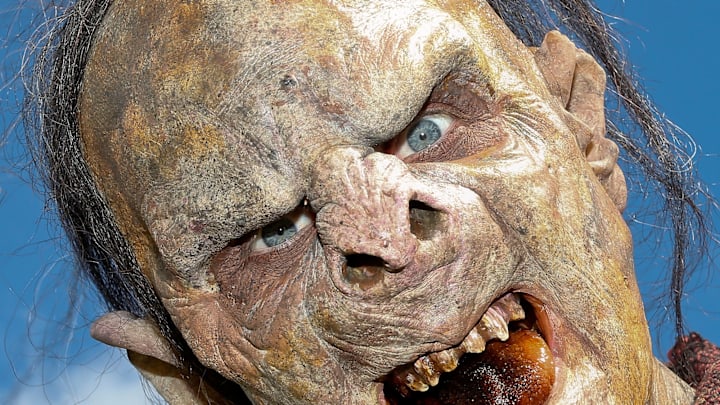It's been a couple of months since we looked at The Hobbit, but it was Tolkien Reading Day last week and I am 9 chapters into re-reading the book for my own enjoyment. Unfortunately, this next chapter in our reading of the classic fantasy tale is not as pleasant as our last stop in Rivendell. Let's see where the goblin tunnels lead us in "Over Hill and Under Hill."
"He knew something unexpected might happen."
"Even the good pans of wise wizards like Gandalf and of good friends like Elrond go astray sometimes when you are off on dangerous adventures over the Edge of the Wild; and Gandalf was a wise enough wizard to know it." This is the understatement that ends the first scene of Chapter 4. That's not to say that he lets things take their course where peril is concerned. While Gandalf is described as "very grumpy, and...far from happy." he encourages the group to think for themselves and to take their own safety in hand. The dwarves use their resources by trusting the eagle eyes of Fili and Kili and asking Gandalf for help.
I don't wish to victim-blame, but we should know things would go wrong as soon as we read the dwarves who "talked and talked, and forgot about the storm." They are too wrapped up in anticipation of what will go well for them to think of what might turn against them, such as the storm or the cave in which they're sheltering.
Luckily, when the cave yawns wide at a crack and the company is seized by goblins, they don't lose their head. Even though they're pinched and pushed and treated cruelly on the way to the great goblin, Thorin stands forth and extends courtesy. He recognizes that while he is weaponless in terms of his sword, he can be armed with the choice to attempt peace. It doesn't work, of course--these are goblins--but it buys them time and keeps them safe for a little while.
Lesson Learned: Harm reduction
I have been volunteering as a crisis counselor for years and one of the things that is emphasized is the role of what they call "harm reduction." It is finding a way for a person to lesson the danger to themself. It could be leaving a situation or changing a relationship.
I wont' go into too much detail here, but the best thing that Thorin does for the dwarves and hobbit in this situation is a form of harm reduction. He reframes his role and doesn't act on one of his instincts. Instead of being a fearsome leader, he is a patient negotiator at first. It does stall things long enough for Gandalf to intervene with deadly force, but I stand by my opinion that Thorin chose wisely.
We'll be back soon for Chapter 5 and Bilbo's "turning point in his career."
